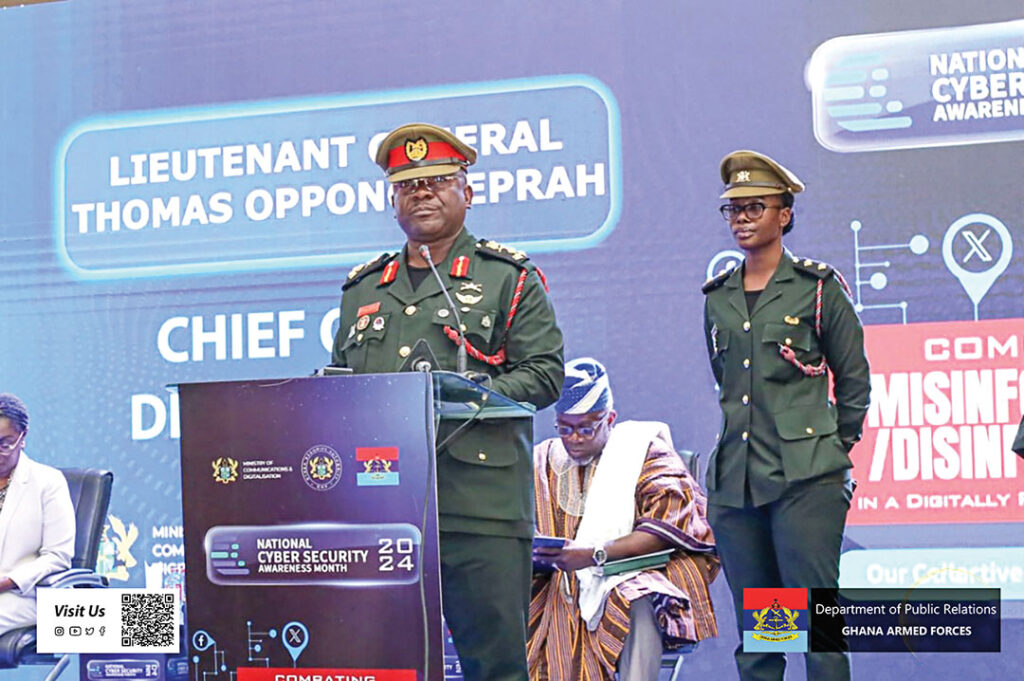As Ghana prepared for presidential elections, Chief of Defence Staff Lt. Gen. Thomas Oppong-Peprah warned of misinformation and propoganda campaigns designed to sow division in the country.
Speaking at the opening of Cyber Awareness Month in October 2024, he stressed “the need to build the capacity of citizens to detect, prevent the proliferation of cyber threats.” He also pledged that the Ghana Armed Forces (GAF) would play a support role in keeping the country safe as the December 2024 elections approached. “The Ghana Armed Forces is ready to support civil authorities and other security agencies to ensure Ghana remains a beacon of democracy in Africa,” Oppong-Peprah said.
As part of the awareness month, the GAF collaborated with the Cyber Security Authority and Ministry of Communication and Digitization to produce a National Cybersecurity Policy and Strategy Document.
Ghana’s Minister of Communications and Digitalisation Ursula Owusu-Ekuful said the country was combating a surge in deepfake videos, YouTube channels spreading misinformation and harmful encrypted messages shared on Telegram designed to affect the election. She said “70% of online misinformation is spread by just 10% of social media accounts.”
Owusu-Ekuful urged the National Communications Authority, the Ghana Police Service and the Attorney General’s Office to prosecute misinformation cases under the country’s Electronic Communications Act and the Criminal Code.
Dr. Albert Antwi-Boasiako, director-general of Ghana’s Cyber Security Authority, said that, above all, protecting democracy requires the public to educate itself to avoid being misled.
“We must engage actively in improving our digital literacy and promoting healthy online habits as we navigate through the myriads of information to make electoral decisions,” he said. “Each citizen regardless of his or her political orientation should be educated to recognize false and malicious information.”
Antwi-Boasiako urged citizens to use fact-checking tools to verify information they find online and encouraged businesses to invest in cybersecurity and train employees on data protection. He said only about 35% to 40% of Ghanaians have basic cyber awareness.
“Awareness creation is the best mechanism for preventing [cybercrime],” he told journalists after the October event. “It is increasing, but I think there is more work to be done.”

